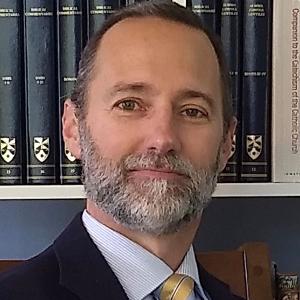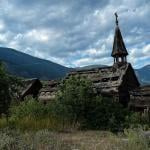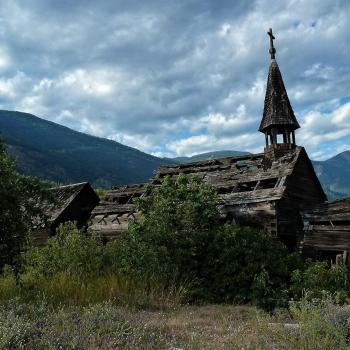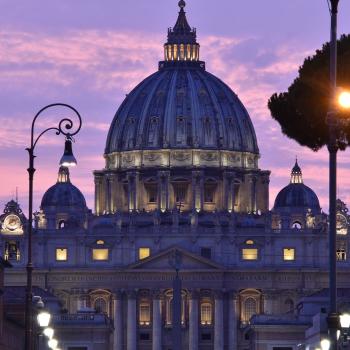
The Pope’s Heretical Documents
Heretical Excerpts With Chronology
In the podcast clip, above, I discuss the pope’s heretical statements. I did not, however, provide any quotes from the texts. Below you will find the offending passages. I am doing this as a response to complaints from readers that I’m accusing an innocent pope of a crime he did not commit. See for yourself. A condemned heresy from the 1970s claimed that the Bible was wrong about sexual morality and that we need modern “science” to understand sexuality better. Once we turn to science, we will see that, in fact, there is nothing wrong, morally or spiritually, with homosexuality.
The sources below show that the pope is promoting this heresy.
Amoris Laetitia—April 8, 2016
- 3. Since “time is greater than space”, I would make it clear that not all discussions of doctrinal, moral or pastoral issues need to be settled by interventions of the magisterium.
- “THE NEED FOR SEX EDUCATION 280. The Second Vatican Council spoke of the need for “a positive and prudent sex education” to be imparted to children and adolescents “as they grow older,” with “due weight being given to the advances in the psychological, pedogogical and didactic sciences.” 301 We may well ask ourselves if our educational institutions have taken up this challenge.— The Joy of Love (Amoris Laetitia): On Love in the Family by Pope Francis
Pope’s Christmas Address to Curia—December 21, 2019
-
All of this has particular importance for our time, because what we are experiencing is not simply an epoch of changes, but an epochal change. We find ourselves living at a time when change is no longer linear, but epochal. It entails decisions that rapidly transform our ways of living, of relating to one another, of communicating and thinking, of how different generations relate to one another and how we understand and experience faith and science. Often we approach change as if were a matter of simply putting on new clothes, but remaining exactly as we were before. I think of the enigmatic expression found in a famous Italian novel: “If we want everything to stay the same, then everything has to change” (The Leopard by Giuseppe Tomasi di Lampedusa).
-
Cardinal Martini, in his last interview, a few days before his death, said something that should make us think: “The Church is two hundred years behind the times. Why is she not shaken up? Are we afraid? Fear, instead of courage? Yet faith is the Church’s foundation. Faith, confidence, courage…”.[20]
Pontifical Biblical Commission Press Release— December 16, 2019
-
“Recognizing that our ‘cultural situation’ is very different from the situations in which the Biblical books were written, Fr Bovati noted that we cannot necessarily find ‘immediate and precise’ answers to contemporary questions in the Bible.” — https://www.vaticannews.va/en/vatican-city/news/2019-12/pontifical-biblical-commission-examines-question-what-is-man.html
- Comment: According to journalists who got a copy of the book, the authors claim that the Bible is wrong about homosexuality and that the error can be corrected by turning to “science.”
German Synod Announcement—December 5, 2019
-
The document . . . [declares] that sexual morality must develop “on the basis of insights of the human sciences. . . .” [R]elying on the human sciences, namely “psychology, sociology, anthropology,” would open up the many prohibitions of sexual morality as proposed by the teaching authority of the Church, “which sees sexual activity only within marriage, and still directed strongly towards procreation.” Consequently, the document justifies the use of contraception, the practice of masturbation, and an active homosexual lifestyle.— LifeSite News
Synod on Synodality Documents:
—Final Report, 2023
- We recommend undertaking work on relationship and sexual education to accompany young people as they mature in their personal and sexual identities . . . .h) It is important to deepen the dialogue between the human sciences, especially psychology and theology, for an understanding of human experience that does not merely situate these approaches by side by side but integrates them into a more mature synthesis. —Sections 14 and 15
—Bishop Barron’s Comment on Final Report, 2023
-
A final point—and here I find myself in frank disagreement with the final synodal report—has to do with the development of moral teaching in regard to sex. The suggestion is made that advances in our scientific understanding will require a rethinking of our sexual teaching, whose categories are, apparently, inadequate to describe the complexities of human sexuality. —Word on Fire
—Ad Theologiam Promovendam—November 1, 2023
- 4. Theological reflection is therefore called to a turning point, to a paradigm shift, to a “courageous cultural revolution” (Encyclical Letter Laudato si’, 114) that commits it, first and foremost, to being a 1fundamentally contextual theology, capable of reading and interpreting the Gospel in the conditions in which men and women live daily. . .
- 9. Faced with this renewed mission of theology, the Pontifical Academy of Theology is called to develop, in constant attention to the scientific nature of theological reflection, transdisciplinary dialogue with other scientific, philosophical, humanistic and artistic knowledge, with believers and non-believers, with men and women of different Christian denominations and different religions.
—Study Group Report, Synod 2024
-
A study group established by Pope Francis to develop a synodal way of discerning Catholic Church teaching on so-called controversial issues, including sexual morality and life issues, has proposed what it calls a “new paradigm” that is heavy on situational ethics but minimizes moral absolutes and established Church teaching.
-
The study group intends to offer “concrete guidelines for discernment” based on its new paradigm to two sets of issues: global peace and stewardship; and “the meaning of sexuality, marriage, the generation of children, and the promotion and care of life.”
-
According to the text of the study group’s presentation, the group emphasized the need to develop an anthropology and “cultural-historical ethics”. —NC Register














